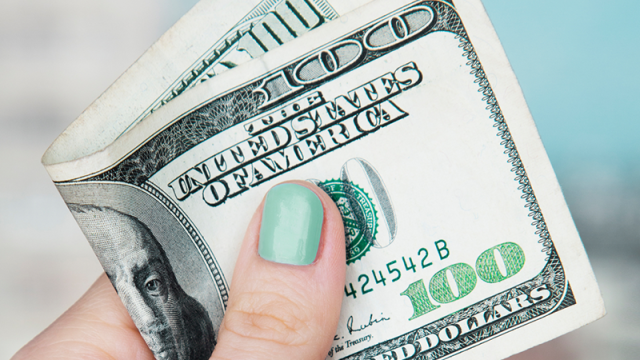What to do with an extra $100

A survey of self-made billionaires found they all had one thing in common: They bought a lot of books. So when asked how he would spend an extra $100, author Steve Siebold said he would invest in “the acquisition of specialized knowledge.”
In a different poll, one person recalled using her surplus cash to pay for a creative writing class, where she developed several story ideas and got helpful feedback on her writing.
Everyone has different ideas about what they’d do with an extra 100 bucks. Some would head to the mall. Others would put it straight into the gas tank. One magazine reader would spend it on an hour with a financial planner. Finance guru Dave Ramsey says he would give it away to show his appreciation for someone.
So let’s say you come across a small financial windfall during the holidays. What’s the smartest thing to do with it?
Pay down a debt.
If given an unexpected cash boon, more than half of people surveyed say they would use it to make a credit card payment. Most experts agree it’s the best way to spend an extra $100. Even a small dent in your debt load will save you money in the long run—and it’s a guaranteed return on your investment.
If your card charges 20 percent interest, for example, paying off $100 “would be like putting $100 into an investment that paid a 20 percent annual return compounded monthly,” said Money Crashers founder Andrew Schrage. As soon as you pay off that principal, you’ll “earn” the amount of interest you would have paid on it, adds Shark Tank star Mark Cuban.
Just make sure you pick the one with the highest interest rate.
Start an emergency fund.
Saving up three to six months’ worth of income for a rainy day is generally considered a financial best practice. Yet fewer than one in three Americans have actually done it. Another third of adults have no emergency savings at all—as in zero dollars.
You never know when an unexpected expense might pop up and hit you right in the bank account. Whether your rainy day fund is nonexistent or could simply use a boost, think of the stress you’ll dodge by having that $100 available when you need it most. Plus, you’ll avoid having to charge the expense to a credit card, which would cost you interest in the long run.
Save up for a goal.
When asked about their biggest financial regrets of 2015, more than a third of survey respondents bemoaned the fact that they didn’t save as much as they had intended. Nearly one in five resolved to spend the next year building their retirement fund.
If you don’t have a savings plan in place, now is the perfect time to start one. Write down your financial goals and organize them based on how long they’ll take. Saving for retirement? Long-term goal. Planning an adventure vacation? Short-term goal.
When you have some extra money to spend, consider splitting it between your short-term and long-term savings. That way, you keep moving toward all of your goals.
With the holidays right around the corner, there’s no telling when a small financial gift might land in your lap. Knowing how to spend your extra cash wisely is one of the keys to building wealth. What would you do with an extra $100?


